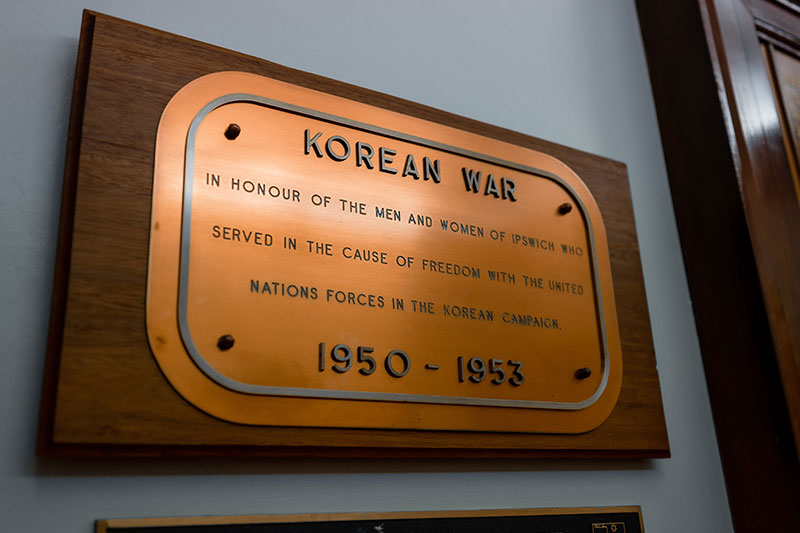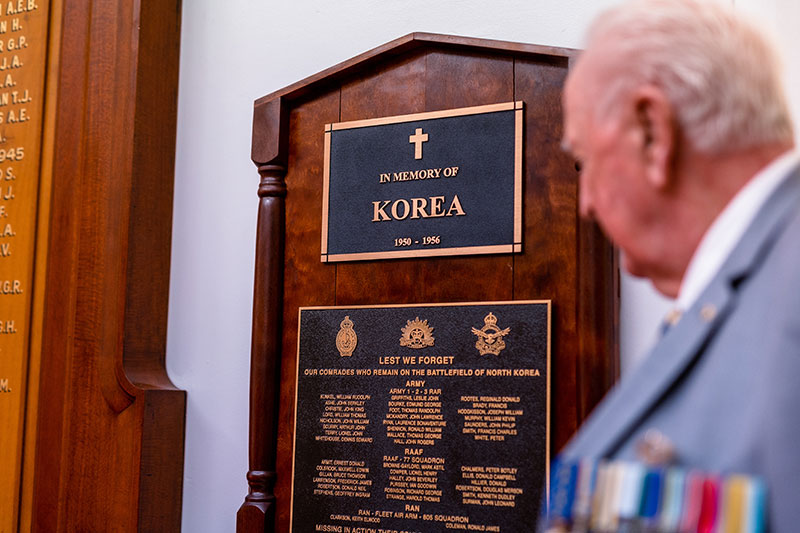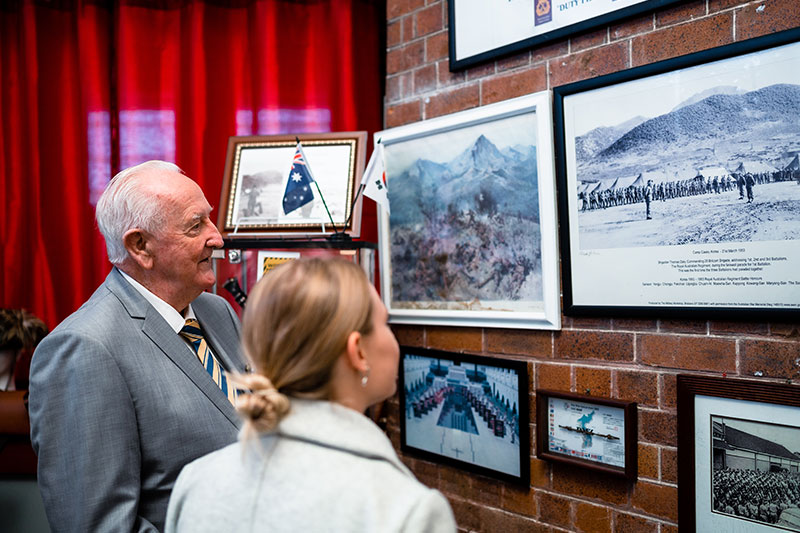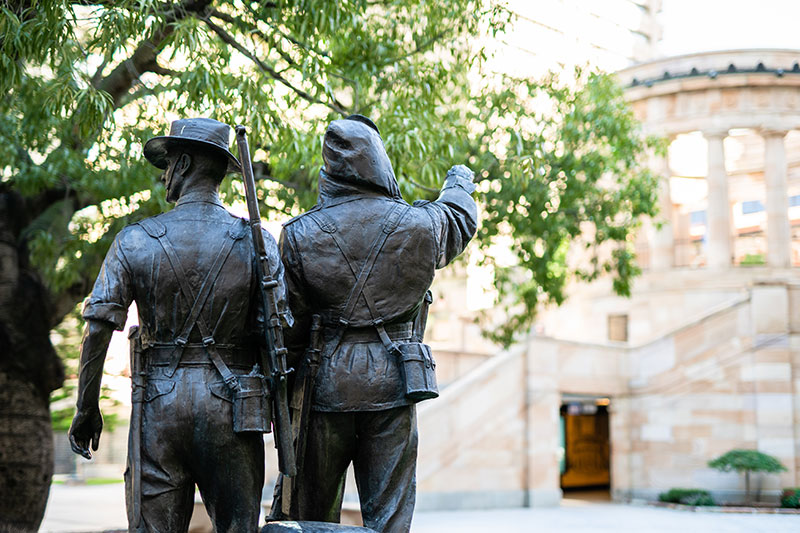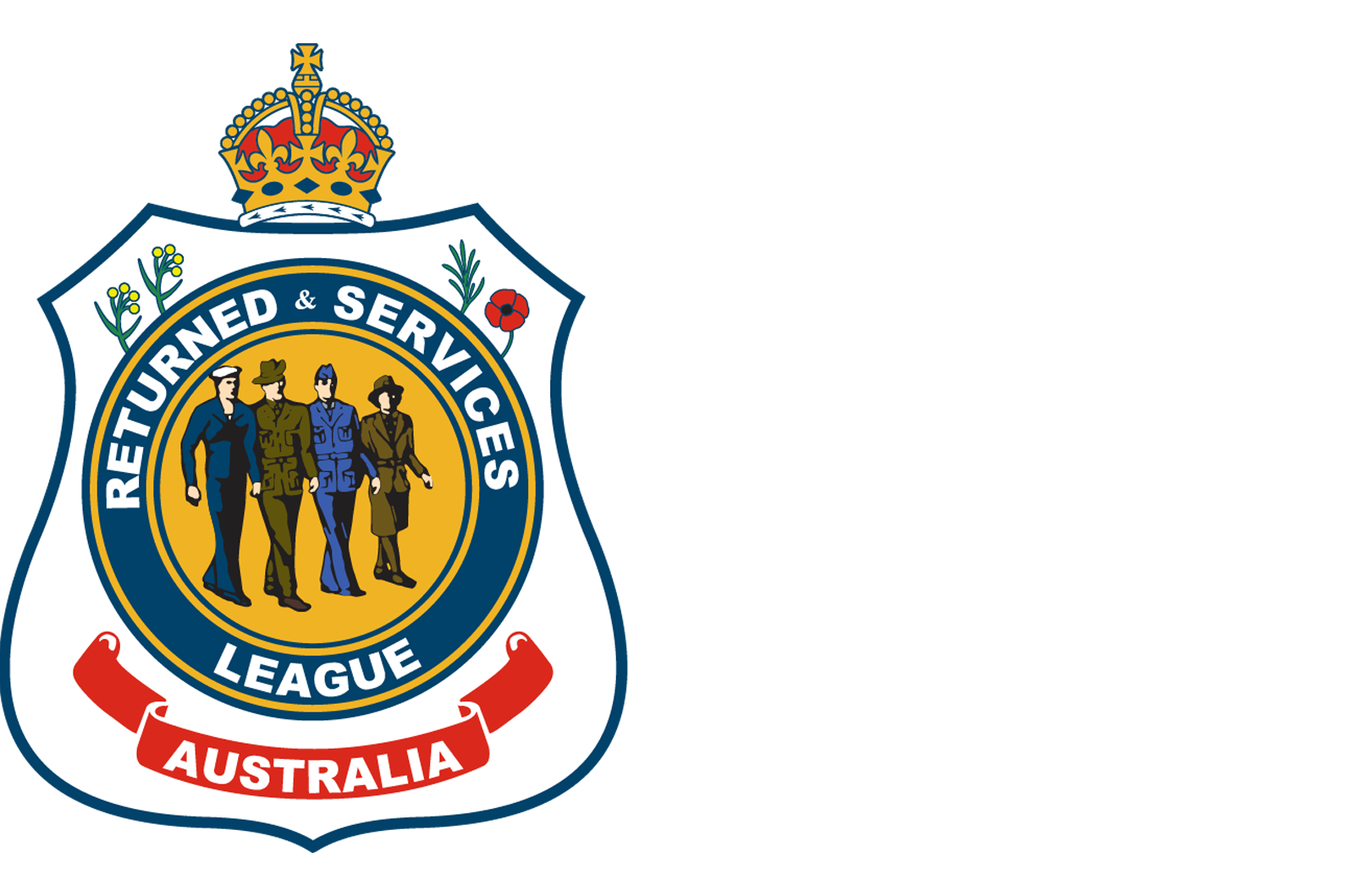23 July 2023
Soldier of the forgotten war
Belinda Crossman
Matthew was just 19 when he joined the Korean War effort, defending South Korea against the invading North and its communist allies.
The newly trained soldier arrived in Pusan, South Korea in 1952, joining 3rd Battalion, Royal Australian Regiment (3RAR) on the front line for 13 weeks.
“The first night I was there, there was a rocket attack. I thought it was very spectacular. But the bloke I was relieving, he’s pushing me into a foxhole saying, ‘Pray, you so-and-so, pray!’. I thought it was a great fireworks display. I was very naïve; I had no idea what all this was about.”
Matthew’s naivety wouldn’t last long. As his battalion moved on to different positions, the reality of war soon set in.
“When the Chinese put in an attack, it wasn't two or three; you'd have 200 charging in,” he says. “And the noise was horrendous – the shell, the mortars, the machine guns, everything blazing over. And my God, the winters – it wasn't unusual to hit 26 degrees below freezing.”
A bullet to the head
Matthew is lucky to be alive after the night of 24 May 1953.
“The Turks were having a battle alongside our position, and the Chinese weren't making any ground on them. So they were trying to find a weak spot in the line,” Matthew recalls. “We happened to be the ones they found, and someone said, ‘Here they come’. That was the last thing I remember.”
Matthew was shot in the back of the head. The bullet pierced his helmet but somehow only grazed his skull. “The next thing I remember was Frank trying to stop the bleeding.”
Having fatally shot the enemy shooter, Matthew’s best mate Frank set about bandaging Matthew’s wound, tearing a field dressing with his mouth – and losing his false teeth in the process. “They went onto the ground, and he just put ’em back in his mouth,” Matthew says.
Sadly, Frank later suffered poisoning from the fertiliser in the soil. “He told everyone ‘til the day he died that I tried to poison him,” Matthew laughs.
“We were very close. When he died, it left a void in my life because we never lost contact over 70 years. I still miss him today.”
The aftermath
Reading notes from a book he bought at the UN headquarters, Matthew details the devastation wreaked by the ‘forgotten war’.
“There were two capital cities, 50 towns and 12,000 villages destroyed,” he says. “Two and a half million civilians dead; three and a half million homeless.”
Australia suffered more than 1,600 casualties, and many veterans, including Matthew, continued to suffer long after the war.
“I have problems sleeping. I have a noise problem. I can't stand being in a crowd, like going to a football match.
“The other thing is the medical problems. We used DDT powder – one of the most insidious poisons ever manufactured and put out to public use – like talcum powder under the arms and groin. Dieldrin was used to kill mice and rats. Creosote was put around all the toilets. Everything used around us was carcinogenic. That had a bearing on a lot of the problems Korean War veterans had up until their death.”
All but forgotten
After 12 months in Korea, Matthew – like many veterans of the Korean War – returned to Australia almost as if nothing had happened.
“We were given a leave pass and told, ‘go home’. That was it,” he says. “There was never any ‘job well done’, pat on the back or welcome home parade. Nothing. We just weren't valued for what we were doing.
“We weren't invited to join the RSL because the American president said at the beginning of the war, ‘It’s like a United Nations police action’. I was told to get out of the Sydney RSL Club in 1954.”
In South Korea, however, Australian veterans are honoured as heroes.
South Korea’s government has gone to many lengths to support Australian veterans, Matthew says. As well as helping fund Australia’s first Korean War memorial, they’ve provided Christmas luncheons, care packages, and even comfortable shoes for ageing feet.
“Although I always say my contribution to Korea was very small, they say, ‘If you weren't there, the Chinese could have come through that gap’. They appreciate what we did, and they go all out to make sure we're welcome.”
South Koreans will often give up their seats or offer generous discounts for veterans like him. “It doesn't matter where you go, they treat you like an exalted person. And I was only a private soldier.”
And despite having no connection to the WWI armistice remembered by many countries on Remembrance Day, South Koreans pause on that day each year to honour their Korean War allies.
“At 11am on the 11th day of the 11th month, everybody stops and turns to Pusan, where the United Nations cemeteries are,” Matthew says. “It really touches me that they would do that for us.”
Revisiting Korea, 70 years on
This year, Matthew will return to South Korea – courtesy of their government – for the 70th anniversary of the Korean War armistice.
“This will be the first time I'll be in Korea for 27 July (Korean Veterans’ Day). It'll be an emotional time, though I'm looking forward to it. To visit the graves of my mates there, it’s very important to me,” he says.
“It means a lot because when I left Korea, there was nothing. Seoul was destroyed. If you’d seen the women and children in Pusan, and the refugees, you wouldn't wish it on anyone.
“Each time I go back to Korea, I'm amazed at the changes. What they've done has left us far behind. And they say it's only because of what I did that they've got it. When I think we were part of that, I feel real proud of my service there.
“The Korean War was a big part of my life. It made me a man; it gave me a purpose. I don't regret my service one bit, and I'd do it again if I had to.”
“A credit to their country”
Matthew has never stopped supporting his fellow veterans. After 11 years in the Army, he’s served as State President of the Korea Veterans Association, spent many years as a welfare officer and Legatee, and dedicated himself to identifying and honouring dozens of unknown soldiers buried at Ipswich Cemetery.
He’ll never forget the ones he served with, either.
Korean Veterans' Memorial at ANZAC Square in Brisbane.
“Just because Korean veterans were forgotten, that doesn’t mean we should keep forgetting them,” he says.
“Korean Veterans’ Day means everything to me. I remember Frank, McDuff, and Jimmy and all. I honour all these blokes. They were great soldiers – some of the finest men Australia produced, I reckon. They were a credit to their uniform. They were a credit to their country.”
Korean Veterans’ Day | 27 July
On 27 July, join RSL Queensland in honouring the invaluable contribution of Australians who served in the Korean War.
For more information on Korean Veterans’ Day and how you can commemorate, visit rslqld.org/korean-veterans-day

